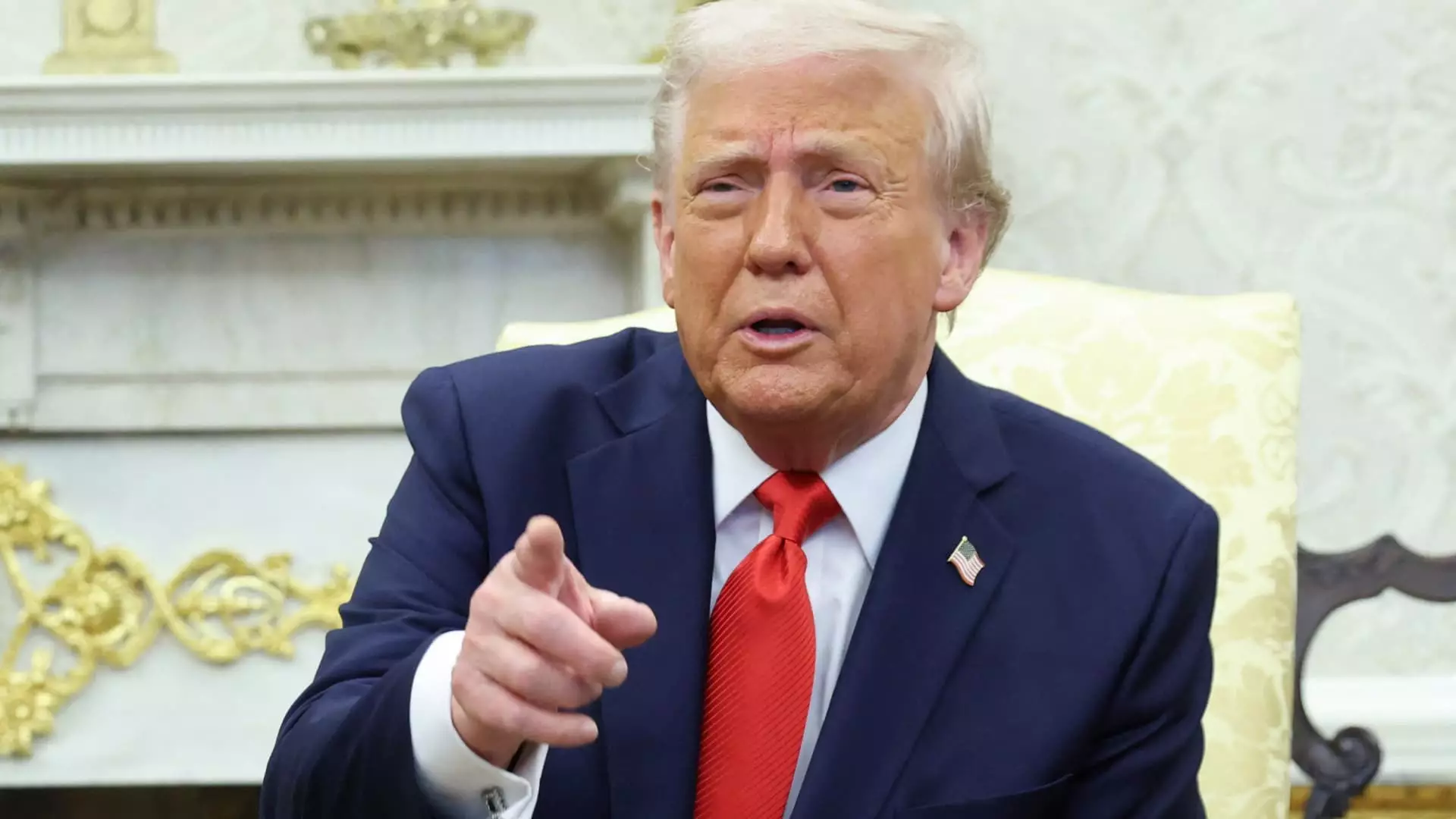In a politically charged climate, President Trump’s recent remarks aimed at supporting American automakers should be met with skepticism. While he has expressed a desire to facilitate the production shift back to the U.S., the broader implications of his automotive tariffs reveal a precarious balancing act. Implemented amidst a flurry of protectionist measures, these tariffs may ultimately handicap domestic manufacturers more than they help them.
The Stock Market’s Reaction: A False Dawn?
Automaker stocks experienced a resurgence following Trump’s optimistic comments about aiding car companies. Firms like Ford and General Motors saw share prices rise by as much as 4%. However, this uptick reeks of a market that is more reactive than reflective. Such volatility, driven by political posturing rather than fundamental improvements in company performance, raises a red flag. Are we witnessing a short-sighted embrace of optimism, or are investors merely clutching at the thin reeds of vague promises?
Complexities of Supply Chains
Trump’s statements about the need for automakers to transition their supply chains from countries like Canada and Mexico seem well-intentioned but disregard the intricate realities facing global supply chains. Moving production back to the U.S. isn’t as simple as a flick of a switch. The automotive industry relies heavily on a finely-tuned network that spans multiple countries, synchronizing components and labor costs. The push for immediate localization, while superficially appealing, could disrupt production schedules and increase costs unpredictably.
Domestic Manufacturers in a Quagmire
For companies like Ford and Stellantis, the immediate past of automotive tariffs has created a complicated web of decisions. Temporary measures like employee pricing and promises not to raise prices in the face of tariffs reveal a frantic attempt to retain consumer trust. Yet, one must ask: are these measures sustainable? While they may provide short-term relief, the long-term ramifications could lead to a fragile marketplace that ultimately hurts consumers and companies alike.
A Warning from the Experts
Economists have long warned that tariffs often backfire, leading to job losses and rising costs for consumers. The cruel irony is that the very tariffs intended to bolster American manufacturing could lead to less competitiveness globally. The automotive industry, often seen as the bellwether for the U.S. economy, finds itself at a crossroads. Can American automakers truly thrive under the weight of protectionist measures intended to help them, or are we headed for a reckoning that will expose the fallacies of such economic policies?
In attempting to salvage American jobs, Trump risks drowning the automotive sector in a sea of uncertainty, leaving workers and consumers mired in turmoil. While the aim of revitalizing U.S. manufacturing is noble, the means of achieving it through tariffs must be critically examined. The time is ripe for discourse about how to foster genuine growth without resorting to economic strategies that resemble more a short-term political expediency rather than a long-term national strategy.

